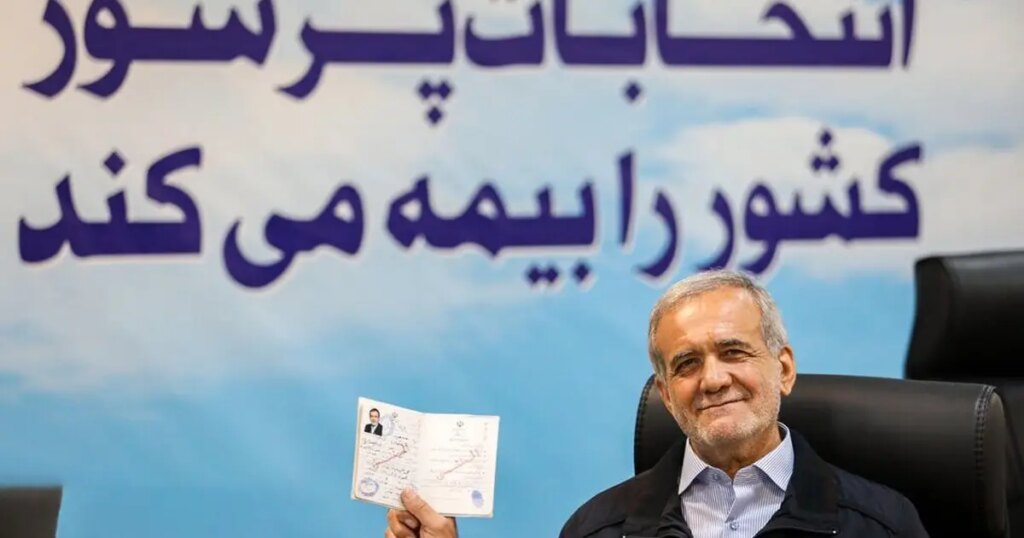The first televised interviews with the main “reform” and conservative candidates, held on national television on Monday, appeared to disappoint both politicians and ordinary voters.
Viewer comments on social media showed that all the candidates had similar weaknesses, but most of the criticism was directed at reformist candidate Massoud Pezeshkian and conservative candidate Mohammed Bagher Ghalibaf.
Mr. Pezeshkian's gaffes and weaknesses came as a surprise to viewers who had high expectations of him, many of whom expected him to be well-dressed and eloquent, like the reformist former president Mohammed Khatami.
Many criticized Pezechkian for dressing too casually compared to the other candidates who were well-dressed, but not all of the criticism of the “reform” candidate was about his appearance. As one observer noted:“His attire was disrespectful to the people. He spoke about the economy for nearly 40 minutes but never uttered the word 'sanctions.' In general, he said he would continue the path of former President Ebrahim Raisi and follow his policies. He repeatedly said he had no plans or policies of his own.”
One of the key issues in this election is the future of the country's faltering economy and the sharp decline in living standards. U.S. and other sanctions are a major factor in devastating an economy already weakened by state control, lack of competitiveness and mismanagement. The average worker in the capital, Tehran, currently earns about $200 a month, yet Iran has vast oil and natural gas reserves.
Reformist politician Mahmoud Sadeghi wrote: “An initial look at reform-friendly voters' reactions to Pezechkian's interview suggests that he did not meet their expectations. If the only reformist candidate continues to campaign in the same way as before, he will not be able to motivate voters to go to the polls.”
Iranian Journalist Mohammed Aghazadeh writes: “Television interviews showed that among the conservative candidates, no one is more loyal to former President Raisi's policies and the government's conservative line than reformist Pezechkian. I believe he is the person most loyal to the core of Iranian political power.”
another Iranian journalist Gholamreza Nouri Ara said: Pezeshkian urged people to be themselves and not to try to imitate anyone: “Don't close the door to the last hope of the people!” Meanwhile, Homayoun Kayli, an Iranian journalist based in London, commented that “Pezeshkian's first interview was good. He outlined all the pillars of Iranian power and the playing field of their rivals, and he made no far-fetched promises.”
Pro-reform Islamic scholar Yaser Mirdamadi writes:“Pezezhkian disappointed everyone by saying that instead of implementing substantive changes, he would continue the old policies with some modifications.”
Ghalibaf faced criticism Because in an interview he said that if elected, he would run the government using the same politicians, statesmen and staff currently working in the government.
One observer pointed out Ghalibaf avoided using the terms market economy and free market when talking about the economy, instead saying progress would come from investment and wealth creation, but did not say how.
According to one viewer's observationBefore airing Ghalibaf's interview, Iranian state television ran a subtitle explaining that the interview had been delayed because edits had to be made to the tape. In the interview, Ghalibaf said he was the father of Iran's missile industry.
As Iranian journalist Davud Heshmati pointed out:It seems the candidates missed their first opportunity to let viewers know about their plans and thoughts for the future.

